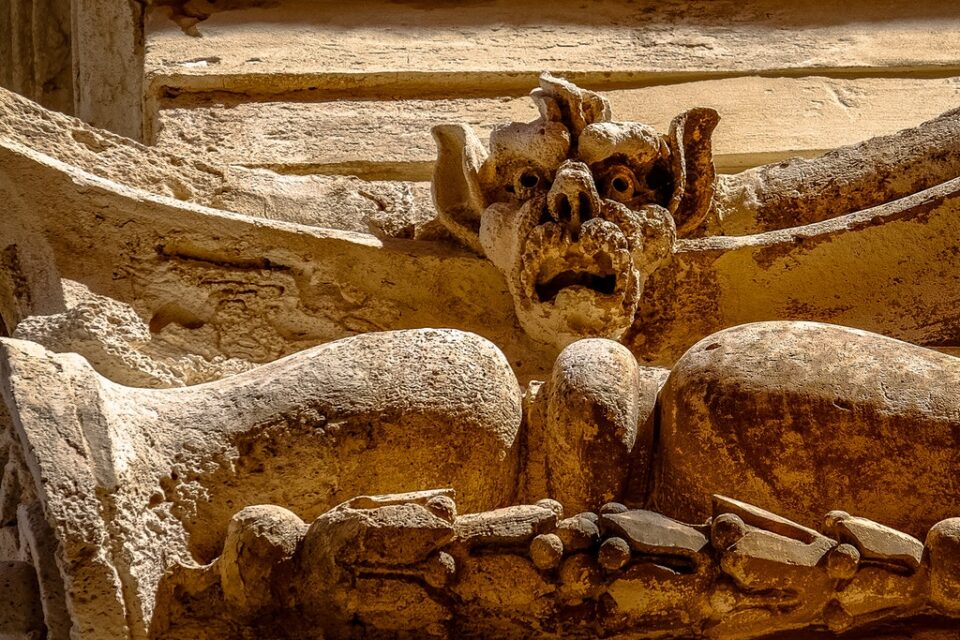Exorcisms bring out the worst in us, literally. I think what makes the concept of possession so frightening is that we have no control over ourselves, and its up to the people around us to first discover that something has gone wrong, and then, to actually do something about it. The most horrifying possession film I can think of would be if no one noticed, if everyone just assumed that nothing had changed even though you weren’t you. It seems to me that possession cinema focuses on trust issues, like how much you trust yourself and the people closest to you. We all like to think that we have some control over ourselves, but I think it’s safe to say that is an ongoing battle. Film is a sort of arena for this battle, as we get to see how other people would handle either similar situations (a symbolic possession or mental health deterioration) or ones far worse than what we are dealing with (literal possession).
Demons are a catalyst for this arena, as we can forgive a character for all the terrible and intense things they do if they are possessed, because it isn’t actually them. Saying ‘the devil made me do it’ is a convenient justification. It is a way to distance yourself from your actions, it’s claiming that someone else is responsible, specifically someone who is difficult to track down because they are in hell. That can make these films easier to deal with, and easier to understand the character’s trauma at being possessed. It removes this possible ambiguity of whether they were conscious or even active.
I’ve found that there are around 3 different types of demon films, and they range depending on this responsibility issue. The first type is quite obvious, like a character having a devil and angel on their shoulders. These are supposed to represent one’s conscience and id, but they are used in a very cartoony way. This type of demon doesn’t negate responsibility, as the subject deals with their inner demon, rather than a demon from hell. They might have been convinced to do something by a dastardly figure, but they were still convinced by something inside them, and are therefore a little more responsible than someone who has been fully possessed.
Other demon films have actual demons present, and generally the characters must band together to defeat them, like The Exorcist (1973) and Constantine (2005). But there is a third more interesting variation of demon film, one where you are never sure if the demon was actually there, if the person was making it up, or if they deluded themselves. This presents an interesting moral dilemma, and really hinges on your beliefs on responsibility and religion, and if there is a distinction between the two.
I would be reticent if I didn’t mention one detail about demon films that include actual demons, this second type. I am slightly suspicious of films where characters battle actual demons without once addressing that they have inadvertently solved one of life’s biggest questions. They did it, they have specific proof that demons and hell are real, and that heaven is too. I feel like this is a big deal, but it never gets discussed. Yeah, now they have to go fight demons, but they also know in detail what happens when you die, and they regularly talk to the figures who govern these places. That is a big deal!
Tangent aside, demon films toy with the politics around inside and out, those transgressive boarders between what I am and what I am not. In doing so, they are often very self-reflexive and critical of the current political, moral, and sexual arguments of the day. Take Rosemary’s Baby, which given the whole Polanski thing, I won’t talk about at length. Suffice to say, the protagonist is a violated woman who is forced to give birth to the antichrist, and is deceived by everyone around her, including her husband. Many of these issues reflect those women were facing in the 60’s (and now), everything from being in a parasitic marriage, where the man governs everything, especially your body, to having no voice or ability to stop what is happening to you, and finally, to having institutions fail you every time you try to use them (like Rosemary’s visit to the doctor). It is a problematic movie for a lot of reasons, but it does address some of the ongoing political issues women face. It is self-reflexive in that women in the audience recognize what is happening, even if it is in an exaggerated shape.
Whether or not the film itself is aware of some of these issues is difficult to say, but they are certainly there for the viewer. I would go as far as to say that watching a film about demons and possession is a type of possession, where we are the possessor. When we watch a demon film, we take on the characteristics of the protagonist, as we follow their life, we get scared as they do, and we project onto the characters without their knowledge. This is a kind of possession, in that we put our own interpretations and assumptions onto the characters, which changes their motivation, at least to us. I suppose this could be said of all film, but I think it is more apparent in horror, as we are already dealing with compromised characters, so adding an additional layer of possession makes some sense.
This week, I am focusing on some classic demon films. Because there are so many films which include actual demons, rather than that ambiguous kind, I will primarily be examining films with direct representations of demons and hell. These are also a bit more fun with the Halloween season, which is only getting started. Tune in as I explore why demons are so terrifying, and what they bring out in us, in characters, and in our culture.
